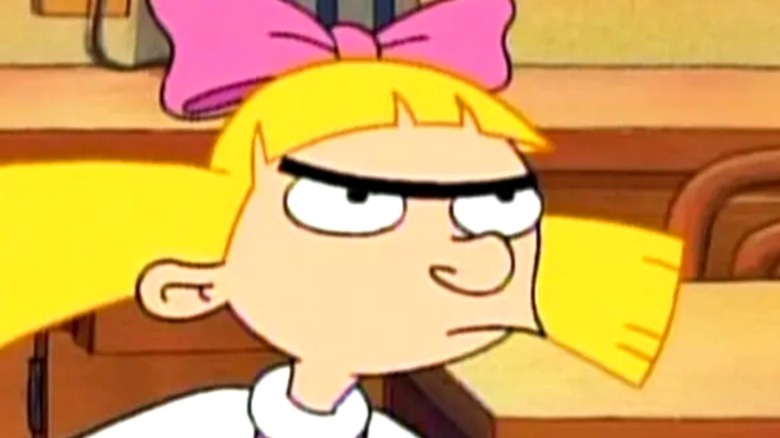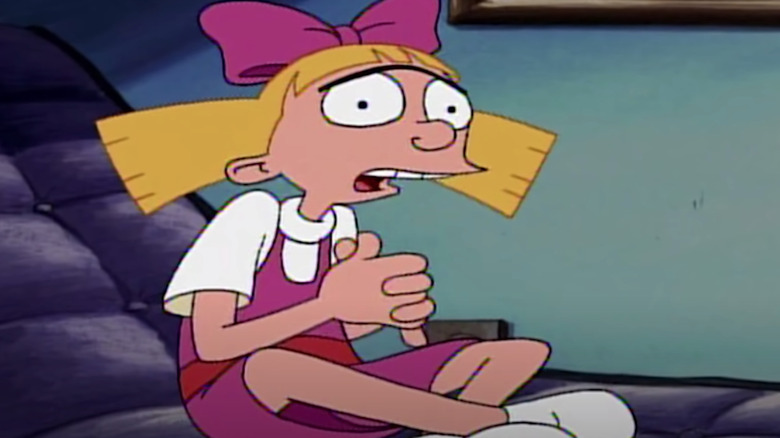The Hey Arnold! Details That Are Darker Than You Think
When we were kids, nothing was better than planting ourselves right in front of the TV and watching hours of cartoons after school. Millennials would turn to Cartoon Network and Nickelodeon to get their fix of iconic cartoons like "CatDog," "Rugrats," and "Courage the Cowardly Dog," among many others. Now, as adults, we realize that some of the shows we watched as kids were actually quite dark. The whole premise of "CatDog" is a bit disturbing, Chuckie in "Rugrats" was constantly reminded that his mother was dead, and several episodes of "Courage the Cowardly Dog" were really terrifying, just to name a few.
Another unsuspecting cartoon from our past — "Hey Arnold!" — is actually a lot darker than you may remember. The Nickelodeon show centered on a school-aged kid with a football-shaped head named Arnold and his friends as they navigate their way through life in a sprawling city. Arnold, along with best friend Gerald, school bully Helga, and other students, deal with real-life issues like absent parents, school crushes, and the dangers of living in a city. However, one particular detail from the '90s cartoon is a lot darker than you may realize.
Helga's backstory is particularly dark
In Season 4, Episode 16, Helga goes to counseling for her disgruntled behavior, and we finally learn why she constantly bullies Arnold and is the way she is. It turns out that Helga was severely neglected as a child by her parents, who were more concerned with her older sister. She tells the counselor stories of how she had to walk to school at just 3 years old because her parents were more focused on her sister. Helga also reveals how her mother would only pack her crackers, hand wipes, and a can of shaving cream for lunch.
The episode also hints that Helga's mother abuses alcohol, further adding to Helga's traumatic background. This episode was equal parts heartbreaking and touching as Helga learns that unrequited love is still love. Even though it's still mean, childish behavior, Helga and her constant bullying make a lot more sense given her dark background with her parents.

